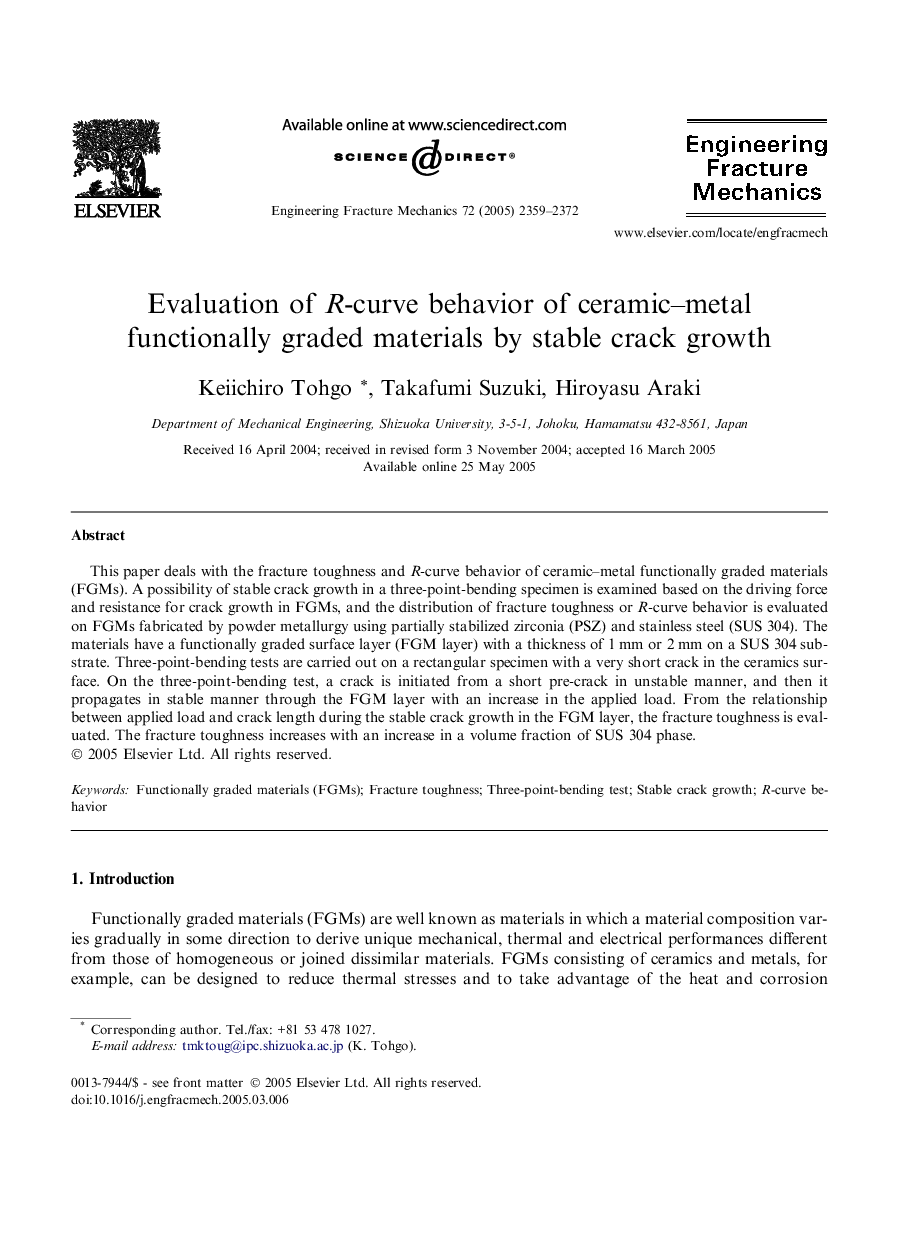| Article ID | Journal | Published Year | Pages | File Type |
|---|---|---|---|---|
| 772386 | Engineering Fracture Mechanics | 2005 | 14 Pages |
This paper deals with the fracture toughness and R-curve behavior of ceramic–metal functionally graded materials (FGMs). A possibility of stable crack growth in a three-point-bending specimen is examined based on the driving force and resistance for crack growth in FGMs, and the distribution of fracture toughness or R-curve behavior is evaluated on FGMs fabricated by powder metallurgy using partially stabilized zirconia (PSZ) and stainless steel (SUS 304). The materials have a functionally graded surface layer (FGM layer) with a thickness of 1 mm or 2 mm on a SUS 304 substrate. Three-point-bending tests are carried out on a rectangular specimen with a very short crack in the ceramics surface. On the three-point-bending test, a crack is initiated from a short pre-crack in unstable manner, and then it propagates in stable manner through the FGM layer with an increase in the applied load. From the relationship between applied load and crack length during the stable crack growth in the FGM layer, the fracture toughness is evaluated. The fracture toughness increases with an increase in a volume fraction of SUS 304 phase.
